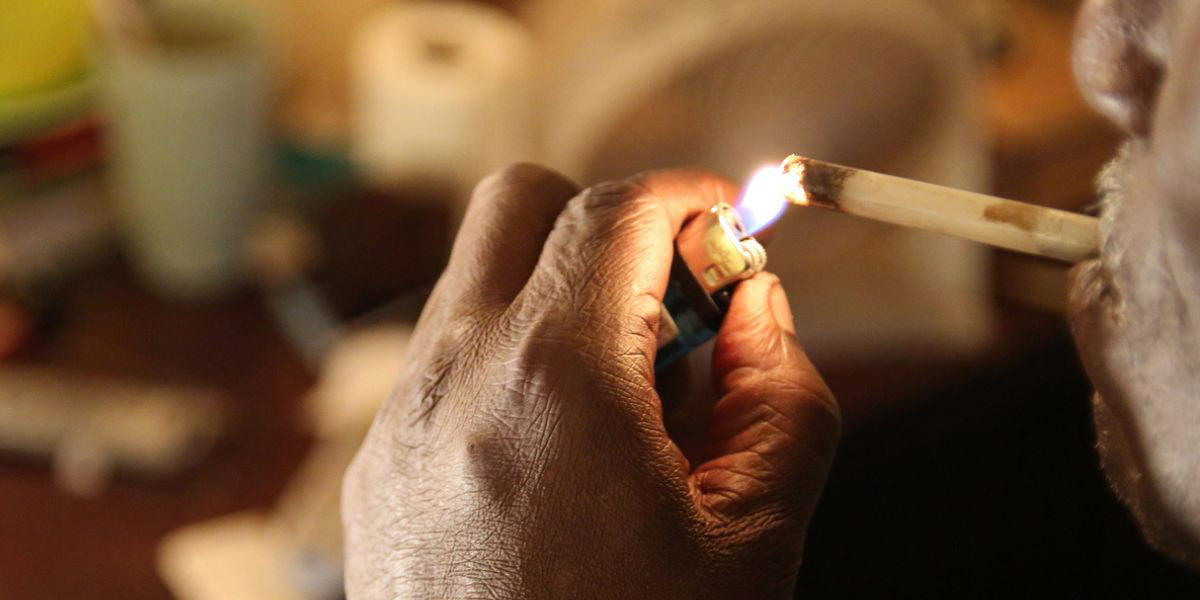Understanding Crack Cocaine Use and Effects


When explaining crack cocaine, it’s important to differentiate between substances often mixed up in public discussions. Cocaine is a strong stimulant made from the coca plant. It comes in different forms and has different effects on the body and society.
Crack cocaine is a type of cocaine that can be smoked. It has a negative reputation and can result in severe societal and legal repercussions. These consequences are distinct from those associated with powdered cocaine.
What Is Crack Cocaine?
The street term for cocaine that has been converted from its hydrochloride form into a smokable free base is crack. Unlike powdered cocaine, crack cocaine appears as small, off-white solid pieces or ‘rocks.’
Crack gets its name from the sound it makes when smoked. This could be because baking soda is used to make it.
Unlicensed chemists use baking soda or ammonia mixed with water and a microwave to extract cocaine’s hydrochloride salt. Someone only needs basic chemistry knowledge to do this.
Crack is a different way of using cocaine, not a new drug. The drug is highly addictive and increases the risk of injecting drugs for those who used to snort cocaine and avoid needles. People who used to snort cocaine or new users are the ones who use crack. Those who used to inject cocaine typically do not use crack.

Crack vs. Cocaine
Crack and cocaine, while stemming from the same source, diverge significantly in their form and societal impact. Crack is a form of cocaine made by removing certain parts of the drug. It comes from the coca plant and is a powerful stimulant. This plant from South America has been used for over 100 years to make cocaine and other drugs like crack.
Crack cocaine is often shown in media as a harmful drug, seen as evil and immoral. Cocaine, the drug that crack comes from, is often seen as a fancy and harmless pleasure, like champagne. This difference in depiction mirrors ingrained societal perspectives towards various manifestations of the same material.
This variation in portrayal reflects deep-seated societal views on different expressions of the same substance. This law established that possessing five grams of crack would lead to a mandatory five-year sentence. This was equivalent to the punishment for possessing 500 grams of powdered cocaine. This significant disparity in sentencing highlighted the legal system’s particularly harsh stance on crack compared to its powdered counterpart.
Because of the new sentencing disparities between crack and powder cocaine possession in the United States, the National Institute of Health or NIH studied the correlation between substance abuse and arrests of both forms of cocaine.
Data from the National Survey on Drug Use and Health (NSDUH) indicates that people using crack face a significantly higher risk of being arrested multiple times or throughout their lifetime compared to those using powdered cocaine. NSDUH’s findings contributed to the passage of the Smarter Sentencing Act of 2014 by Congress, which addressed disparities in sentencing related to cocaine offenses.
What Are the Effects of Crack Cocaine?
The effects of crack cocaine manifest rapidly and fade quickly, typically within a few minutes to an hour. Taking too much of the drug can cause heart attacks, strokes, or seizures, which could lead to sudden death.
A little crack can make users feel euphoric effects like feeling happy, energetic, chatty, alert, and extra sensitive to sound, touch, and sight. Conversely, consuming large quantities can intensify effects and trigger violent, unusual, and erratic behavior. Significant doses of crack cocaine cause anxiety, panic, paranoia, restlessness, and tremors.
Short-Term Effects of Crack
Crack cocaine has varying impacts on users, but some immediate effects can include:
- Decreased hunger
- Euphoria
- Dilated pupils
- Sensations of physical strength or mental acuity
- Restlessness
- Parched mouth
- Unpredictable, violent actions
- Suspicion
- Self-assuredness
- Increased body heat
- High blood pressure
- Sleeplessness
- Migraines
- Rapid heartbeat
- Vertigo
Crack Cocaine Long-Term Effects
Crack and cocaine have similar negative effects, but different ways of using cocaine can cause unique harm.
Using cocaine often can cause loss of smell, nosebleeds, trouble swallowing, a hoarse voice, and irritation in the nose. These symptoms can result in chronic inflammation and a runny nose. This can lead to ongoing inflammation and a runny nose. Smoking crack can cause severe lung damage and exacerbate asthma conditions.
Regular use of smoking crack cocaine can result in long-term effects, including:
- Lung problems like bronchitis
- Seizures
- Psychological conditions like psychosis and paranoia
- Erectile dysfunction
- Kidney failure
- Heart-related conditions
- Strokes
- Internal organ injury
- Movement disorders such as Parkinson’s disease
Frequent users of crack cocaine commonly suffer from a reduced desire to eat, resulting in weight loss and malnourishment. Additionally, the substance can affect the heart, causing chest pain similar to a heart attack. This usually prompts people to seek immediate medical help at the emergency room.

Crack Cocaine Addiction Treatment Program
Most people seeking treatment for crack cocaine addiction use multiple drugs. Nevertheless, various behavioral therapies for substance abuse have been most effective in residential treatment settings. These empowering environments offer support that helps enhance self-confidence and mental health for lasting recovery.
White Oak Recovery Center‘s residential facility focuses on each resident’s unique needs. The goal is to address the root causes of addiction and provide long-lasting drug rehabilitation.
WORC provides evidence-based addiction treatment programs. These programs include supervised detox and medication-assisted treatment. They also offer dual diagnosis for mental health conditions. Our compassionate experts create personalized treatment plans to help you or your loved one through every step of recovery.
Let us assist you in finding your unique path to recovery. Contact us today to start your journey towards peace.

Am I covered for addiction treatment?
Your insurance may cover treatment. Call now for an entirely free and confidential assessment. Recovery starts with a phone call.

- “Cocaine and Crack.” British Medical Journal, Aug. 1989.
- Palamar, Joseph J., et al., “Powder Cocaine and Crack Use in the United States: An Examination of Risk for Arrest and Socioeconomic Disparities in Use.” Drug Alcohol Depend., Apr. 2015.
- Wallace, B.C., “Treating Crack Cocaine Dependence: The Critical Role of Relapse Prevention.” J Psychoactive Drugs, Jun. 1992.
- “Crack Cocaine Fast Facts.” National Drug Intelligence Center, Apr. 2023.
Medical Disclaimer:







